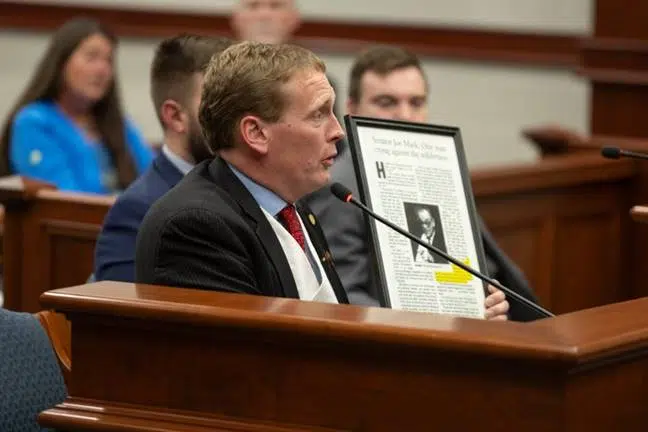State Rep. Dave Prestin, along with state Reps. Gina Johnsen, Greg Markkanen, Jerry Neyer, John Roth, Kathy Schmaltz, and Curt VanderWall released the following statement on Monday urging House leadership to hold a vote on a bill package that would allow state correction officers to participate in the State Police Retirement System:
“Passing these bills would mark a crucial first step toward the state regaining the trust of its corrections officers and proving that their hard work and sacrifice do not go unnoticed. Devastating staffing shortages have led to high-stress environments, deteriorating morale, and dangerous interactions with inmates. We’ve all heard from struggling corrections officers in our communities and some of us have seen these unsafe conditions firsthand. Robust retirement options will give the state increased means to attract and retain quality personnel and finally begin addressing critical staffing shortages.”
Senate Bills 165-167 would give current corrections officers the option to switch over to the state police retirement system or remain with their current plan, a 401(k) retirement account offered to most state employees. All new eligible employees hired after Sept. 30, 2024, would be directly enrolled into the state police pension plan.
“Some staff may often enter a prison before the sun rises and leave after the sun sets,” said Prestin, R-Cedar River. “They may go days without the ability to spend meaningful time with family. Not only do these grueling conditions lead to high stress and morale problems in the workplace, but they also put additional strain on the families waiting for their loved ones to come home after a long shift. If the state is going to ask staff to sacrifice this much personal time, they deserve the best possible retirement benefits waiting at the end of their professional careers.”
Corrections officers are regularly forced to work mandatory 16-hour shifts due to rampant staffing shortages across Michigan prisons. The Michigan Department of Corrections employs 5,500 officers to oversee 33,000 felons across 26 facilities. The Michigan Corrections Organization reports that nearly half of Michigan prisons have staffing vacancies above 20%, with five facing vacancies over 30%.
“Corrections officers make daily sacrifices the rest of us couldn’t even imagine; between going toe to toe with dangerous criminals and spending days on end away from family, these folks have earned benefits they can count on when they decide to retire,” said Roth, R-Interlochen. “These would be high-stress jobs if our prisons were fully staffed, but because of these devastating shortages, MDOC is stretching the few officers we have left to the breaking point. This plan requires immediate attention so we can finally start securing the help our corrections officers desperately need.”
“As someone who represents a large number of corrections officers, I can say that this is a good step in the right direction,” said Johnsen, R-Portland. “Passing these bills is the least we can do for those who give so much of their time and energy. This is a high-stress job, and our officers need to know that they have all the options available to them when they are ready to retire at the end of their careers. I’m looking forward to working with my colleagues in the new legislative term to find even more ways we can make their jobs better in the long term, while also finding short-term solutions to make their jobs safer and attract more young people to this field.”
The House Republicans agreed that offering quality retirement plans is a good start, but the solution is just one of the many needed to improve conditions in state prisons. Prestin and others have long advocated for better working conditions, reduction of mandatory overtime, more predictable work schedules, improved post-employment benefits, and increased pay for state corrections officers.
“House leadership needs to get their priorities straight. We must stand up for our corrections officers,” said Schmaltz, R-Jackson. “Not only are the staffing shortages dangerous for them, but they’re also a public safety issue. As a representative of many corrections officers and prisons in my district, we must act now.”
“Corrections officers go toe-to-toe with dangerous criminals every day,” said Markkanen, R-Hancock. “Yet, they remain wildly understaffed, underpaid, and unappreciated by the administration. Corrections officers have said they need better pay and benefits. It’s time to listen to them.”






















Comments